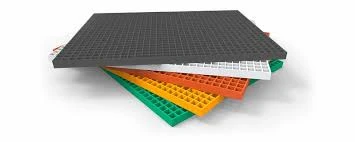
-
 Afrikaans
Afrikaans -
 Albanian
Albanian -
 Amharic
Amharic -
 Arabic
Arabic -
 Armenian
Armenian -
 Azerbaijani
Azerbaijani -
 Basque
Basque -
 Belarusian
Belarusian -
 Bengali
Bengali -
 Bosnian
Bosnian -
 Bulgarian
Bulgarian -
 Catalan
Catalan -
 Cebuano
Cebuano -
 China
China -
 China (Taiwan)
China (Taiwan) -
 Corsican
Corsican -
 Croatian
Croatian -
 Czech
Czech -
 Danish
Danish -
 Dutch
Dutch -
 English
English -
 Esperanto
Esperanto -
 Estonian
Estonian -
 Finnish
Finnish -
 French
French -
 Frisian
Frisian -
 Galician
Galician -
 Georgian
Georgian -
 German
German -
 Greek
Greek -
 Gujarati
Gujarati -
 Haitian Creole
Haitian Creole -
 hausa
hausa -
 hawaiian
hawaiian -
 Hebrew
Hebrew -
 Hindi
Hindi -
 Miao
Miao -
 Hungarian
Hungarian -
 Icelandic
Icelandic -
 igbo
igbo -
 Indonesian
Indonesian -
 irish
irish -
 Italian
Italian -
 Japanese
Japanese -
 Javanese
Javanese -
 Kannada
Kannada -
 kazakh
kazakh -
 Khmer
Khmer -
 Rwandese
Rwandese -
 Korean
Korean -
 Kurdish
Kurdish -
 Kyrgyz
Kyrgyz -
 Lao
Lao -
 Latin
Latin -
 Latvian
Latvian -
 Lithuanian
Lithuanian -
 Luxembourgish
Luxembourgish -
 Macedonian
Macedonian -
 Malgashi
Malgashi -
 Malay
Malay -
 Malayalam
Malayalam -
 Maltese
Maltese -
 Maori
Maori -
 Marathi
Marathi -
 Mongolian
Mongolian -
 Myanmar
Myanmar -
 Nepali
Nepali -
 Norwegian
Norwegian -
 Norwegian
Norwegian -
 Occitan
Occitan -
 Pashto
Pashto -
 Persian
Persian -
 Polish
Polish -
 Portuguese
Portuguese -
 Punjabi
Punjabi -
 Romanian
Romanian -
 Russian
Russian -
 Samoan
Samoan -
 Scottish Gaelic
Scottish Gaelic -
 Serbian
Serbian -
 Sesotho
Sesotho -
 Shona
Shona -
 Sindhi
Sindhi -
 Sinhala
Sinhala -
 Slovak
Slovak -
 Slovenian
Slovenian -
 Somali
Somali -
 Spanish
Spanish -
 Sundanese
Sundanese -
 Swahili
Swahili -
 Swedish
Swedish -
 Tagalog
Tagalog -
 Tajik
Tajik -
 Tamil
Tamil -
 Tatar
Tatar -
 Telugu
Telugu -
 Thai
Thai -
 Turkish
Turkish -
 Turkmen
Turkmen -
 Ukrainian
Ukrainian -
 Urdu
Urdu -
 Uighur
Uighur -
 Uzbek
Uzbek -
 Vietnamese
Vietnamese -
 Welsh
Welsh -
 Bantu
Bantu -
 Yiddish
Yiddish -
 Yoruba
Yoruba -
 Zulu
Zulu
Molded Fiberglass Grating - Durable, Lightweight & Corrosion Resistant Solutions
Molded Fiberglass Grating A Sustainable Solution for Modern Infrastructure
Molded fiberglass grating has emerged as a leading solution in various industries, thanks to its unique properties and advantages over traditional materials like steel and wood. Fiberglass reinforced plastic (FRP) grating is made by combining fiberglass with resin, resulting in a lightweight, durable, and corrosion-resistant product that meets the challenges of demanding environments. This versatile material has found applications in industries such as chemical processing, wastewater treatment, marine, and construction.
One of the primary benefits of molded fiberglass grating is its resistance to corrosion. Many industrial applications involve exposure to harsh chemicals, moisture, and extreme temperatures, which can quickly deteriorate conventional materials. Fiberglass grating, however, withstands these conditions with ease. This corrosion resistance not only extends the product's lifespan but also reduces maintenance costs significantly, making it a financially attractive option in the long run.
In addition to its durability, molded fiberglass grating is lightweight compared to steel or aluminum alternatives. This feature simplifies transportation and installation processes, thereby saving valuable time and reducing labor costs. Despite its lightness, molded fiberglass grating does not compromise on strength. It can support heavy loads while providing safety and stability for workers. This combination of attributes makes it an ideal choice for walkways, platforms, and stairways in various industrial settings.
molded fiberglass grating

Another crucial advantage of molded fiberglass grating is its slip resistance. Safety is paramount in industrial environments, and this material typically features a textured surface that enhances traction, minimizing the risk of slips and falls. Many manufacturers offer grating with different surface patterns, allowing for customization based on the specific needs of a project. This focus on safety ensures that companies can maintain a secure working environment for their employees.
Sustainability is an increasing concern in modern infrastructure development, and molded fiberglass grating aligns well with this priority. The production process of fiberglass grating often involves recycled materials, contributing to reduced environmental impact. Furthermore, its longevity means that less frequent replacements are necessary, which helps in conserving resources over time. By investing in molded fiberglass grating, companies can make significant strides toward eco-friendly operations while enjoying the benefits of a high-performance product.
The versatility of molded fiberglass grating also deserves attention. It is available in various sizes, colors, and configurations to meet the specific needs of different projects. Whether for industrial applications or aesthetic purposes in architectural designs, fiberglass grating can adapt to various requirements. Its non-conductive properties make it especially suitable for electrical applications, ensuring safety in environments where electricity poses a risk.
In conclusion, molded fiberglass grating is an innovative solution that addresses many of the challenges faced by industries today. With its corrosion resistance, lightweight characteristics, slip resistance, and sustainable benefits, it proves to be a superior alternative to traditional materials. As industries continue to seek efficient, safe, and environmentally friendly solutions, molded fiberglass grating stands out as a reliable option that can meet diverse needs while enhancing overall operational efficiency. Embracing this technology not only aids in modernization but also contributes to a sustainable future for various sectors.
Latest news
-
Exploring the Benefits of Top Hammer Drifter Rods for Enhanced Drilling PerformanceNewsJun.10,2025
-
High-Precision Fiberglass Winding Machine for GRP/FRP Pipe Production – Reliable & Efficient SolutionsNewsJun.10,2025
-
FRP Pipes & Fittings for Shipbuilding - Corrosion-Resistant & LightweightNewsJun.09,2025
-
Premium FRP Flooring Solutions Durable & Slip-ResistantNewsJun.09,2025
-
Premium Fiberglass Rectangular Tanks Durable & Lightweight SolutionNewsJun.09,2025
-
Tapered Drill String Design Guide Durable Performance & UsesNewsJun.09,2025









